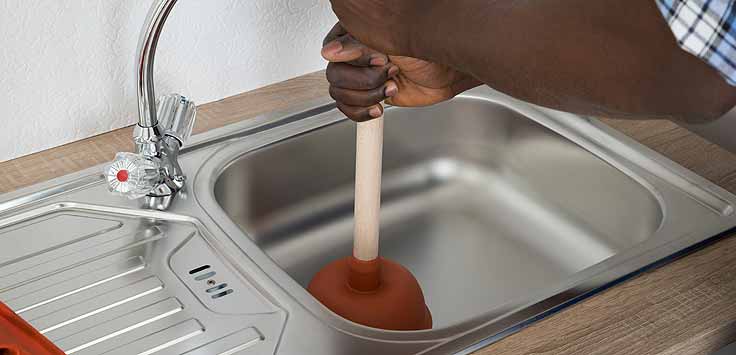You may believe that your drain is operating well until it becomes clogged. Before you can use your sink again, you must now invest a lot of time and money in unclogging the blockage.
By taking daily care of your drain, you may avoid this situation. Here are a few quick tips to maintain the health of your plumbing system and your drain pipes.
- Consider the water’s temperature
You could use lukewarm water to wash your hands. However, did you know that the grease deposits hiding in your drain may be broken up by using really hot water? Ensure that hot water is running at least once every week.
When using your disposal, on the other hand, you should use cold water, not boiling. Hot water may cause the grease to melt and film the drain when you run your disposal with it. In order for the disposal to break down the grease, cold water will maintain it in a solid state.
- Discard the grease
Speaking of grease, it’s preferable to avoid putting it down the drain as much as you can. Huge blockages may be produced by the bonding of oil and grease with other substances and each other. Grease and oil should be placed in an old can or container before being disposed of, not down the kitchen sink.
- Utilize a drain trap
Certain materials, such soap scum, crumbs, and hair, find it difficult to drain. These compounds often clog shower drains, but they may also clog sink and toilet drains.
Place a drain trap over the sink entrance to avoid a clog. Non-liquid substances won’t flow down the drain; instead, they will collect in the drain trap. Then you may take out the drain trap and discard the items in the trash.
- Make Your Drain Clean
Any of the following techniques may be used to unclog your drain if you’re worried that one is likely to form.
Half a cup of baking soda should be added to the drain. Then, add half a cup of salt and one-fourth of a cup of white vinegar on top of the baking soda. After 15 minutes, pour boiling water into the sink after letting the drain run.
Pour roughly a spoonful of dish soap down the drain to help with accumulated fat and oil. After that, pour boiling water gradually down the drain. The grease should be removed by washing it away with soap and water.
Try putting a spoonful of salt down the bathroom sink drain. After adding salt to your drain, add 1/4 cup of white vinegar, and then let it sit. Run hot water down the drain an hour later.
Wearing gloves will safeguard your hands while you are pouring hot water, so keep that in mind.
Adding bleach to your drain on a regular basis can also keep it clean. Before turning on the water again, pour a little quantity of bleach down the drain and let it sit for at least an hour.
- Keep certain substances away
By disposing of the following items in the trash rather than the drain, you may help avoid clogs:
- Eggshells
- espresso grinds
- items for cleaning the home
- Medications
- Printed towels
- Make stickers
- Napkins
- Fruit skins
These materials are difficult for disposal systems to break down, and they could seriously clog drains.
By following these instructions, you can maintain your drains free of obstructions and prevent common drainage issues. Nevertheless, despite your best efforts, obstructions sometimes occur. Without the proper knowledge and tools, a tenacious blockage is difficult to dislodge.
To clear a blocked drain in Northern beaches, contact an experienced blocked drain plumber. An expert plumber for blocked drains in Northern beaches can clear the obstruction from the source so you can once again have a clean drain.

